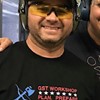
CCW (Concealed Carry Weapon) and CCL (Concealed Carry License) are often used interchangeably for the permit that allows you to carry a concealed firearm. “Concealed” means it’s not visible; so, no one around you would know that you have a firearm.
There are many misconceptions about what a concealed carry permit is and what is permissible by the laws of each state and/or county. There are also pros and cons of having a CCW and carrying a concealed firearm. A CCW is definitely not a “get out of jail free” card to act like Dirty Harry.
You might be wondering why you need a CCW if you can open carry. Well, when you open carry, you make yourself a target, just like law enforcement officers in uniform. It can both deter and invite trouble since you stick out. Concealed carry has the advantage when it comes to civilians. In some areas of the country, open carry will frighten people, and law enforcement may or may not handle the situation correctly. Another advantage of having a CCW in some states, such as Arizona, is that it allows you to carry more places, where open carry or constitutional carry will not.
CCW does not allow you to carry a firearm everywhere. There are still limitations, even if it infringes on the Second Amendment. Some places are gun free zones, so unfortunately you can’t carry or defend yourself with a firearm in these areas. Gun free zones are targets for criminals because they know no one will have a firearm to stop them. These places include schools, banks, bars, and private and public events. Since these areas are where they are needed most, either the law needs to change to eliminate gun free zones, or these zones need an ample amount of armed security, both uniformed and undercover.
Carrying a concealed firearm is a great responsibility. As a CCW holder, you are held to a higher standard; you have to be better than everybody else. I like to compare it to a monk who has taken a vow to use violence as a last resort. You should avoid arguments with people but know how to defuse them when they arise. You need to be aware of your surroundings so that you can avoid situations that may force you to defend yourself.
You are not a superhero looking to fight crime! You can’t instigate an argument or insult someone into trying to hurt or kill you and use a firearm to defend yourself. Don’t go looking for a fight in order to justify violence.
You also want to be aware of specific laws surrounding concealed carry. For example, in some places, if your firearm is accidentally exposed, it can be considered brandishing a firearm. Make sure you’re properly dressed for carrying a concealed weapon. And, don’t forget about the legal matters after you’ve discharged your firearm.
Let’s say you have your CCW, and you find yourself in a situation where you did everything you could to avoid firing your weapon but were forced to defend yourself. You would think everything would be ok because you did everything right. However, this isn’t the case 100% percent of the time. It’s a good idea to have legal protection. Your fight is not over. Now you’ll have to fight in court to prove you are innocent. There are many options. I myself went with USCCA. Not only do they provide legal protection, but they also have excellent training information and education.
It is always recommended to seek professional training to gain a full grasp of the information and to get actual range time. If you have any questions, please email me. I also teach CCW classes and a variety of firearms training courses through GST Workshop.
